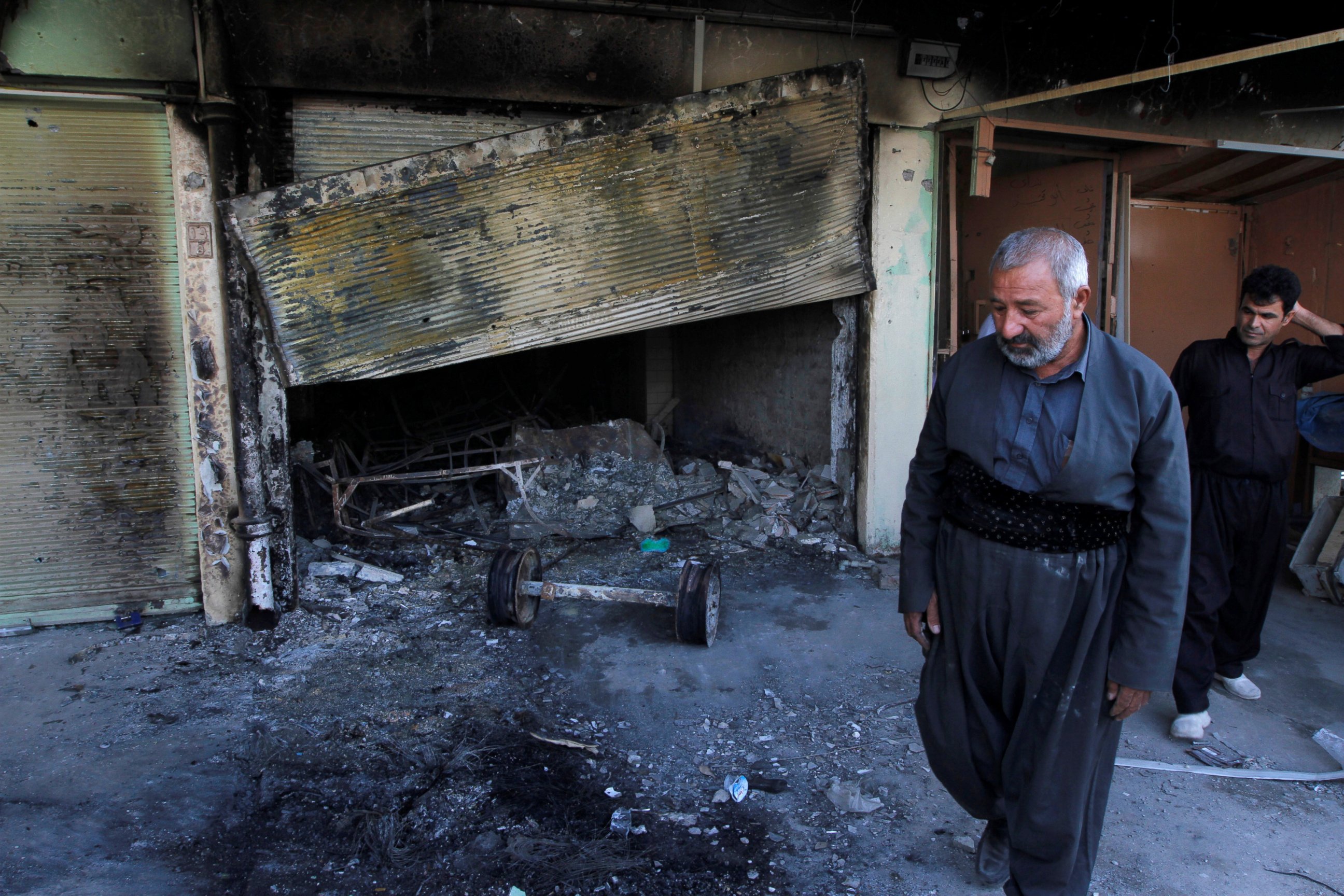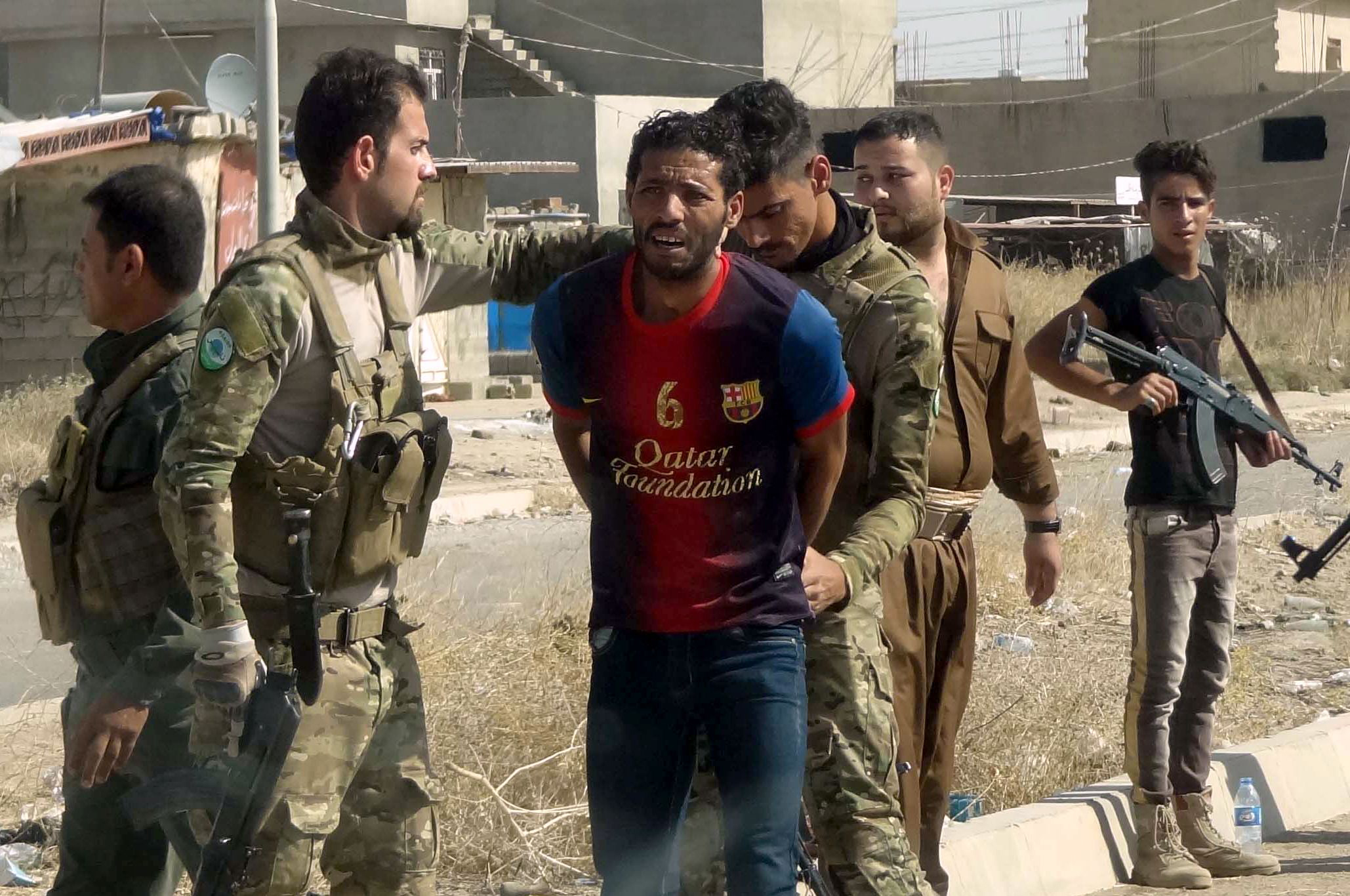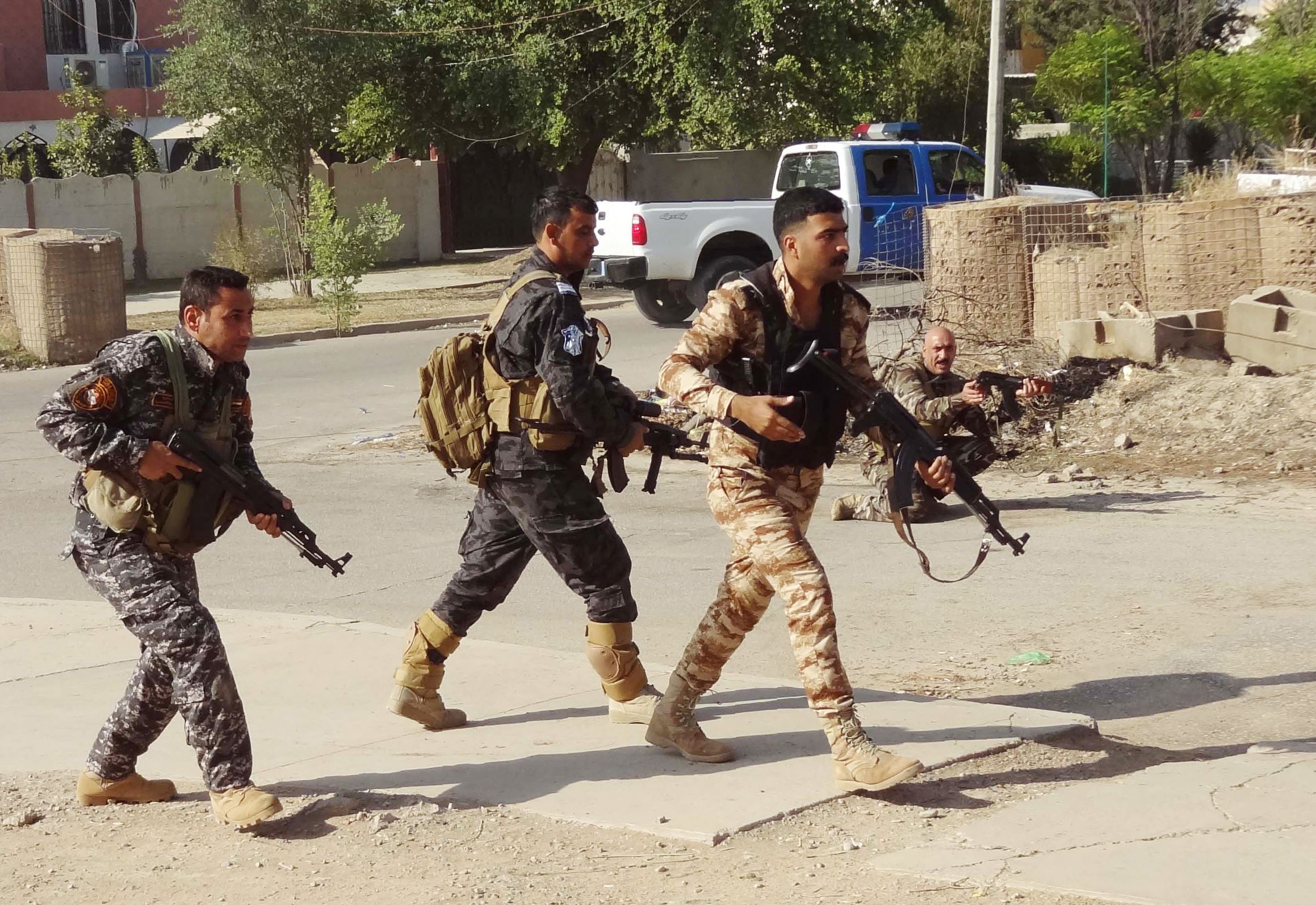Battle for Mosul Advances Amid Reports of ISIS Holding Families to Use as Human Shields
There are reports that ISIS is using some 550 families as human shields.
— -- The massive battle to liberate Iraq’s second largest city from ISIS entered its sixth day amid reports that the terrorist group has taken hundreds of civilians captive to use as human shields.
As Iraqi-led forces advance toward Mosul, the last major stronghold of ISIS in Iraq, the United Nations said it is “gravely worried” about reports that the Islamic State group, also known as ISIS or ISIL, is holding some 550 families in and around the northern city for use as human shields.
U.N. High Commissioner for Human Rights Zeid Ra’ad Al Hussein also said his office will be investigating reports of ISIS executing at least 40 civilians in one of the villages outside Mosul.
“There is a grave danger that ISIL fighters will not only use such vulnerable people as human shields but may opt to kill them rather than see them liberated,” he said in a statement. “We know ISIL has no regard for human life, which is why it is incumbent upon the Iraqi Government to do its utmost to protect civilians.”

The Iraqi-led coalition moving toward Mosul has encountered booby traps, roadside bombs and trenches filled with oil that ISIS set ablaze to provide smoke cover for its fighters. Dramatic images from the area show thick black smoke rising from torched oil fields and billowing into the sky over Mosul and surrounding towns.
ISIS has also torched sulfur stocks at an industrial plant south of Mosul, sending plumes of toxic smoke into the air and over a base where U.S. military advisers are stationed. There have been no reports of hospitalizations so far, though some American service members have donned gas masks as a precaution. The U.S.-led coalition against ISIS said it has collected air samples as a precautionary measure to analyze the fumes.
Iraqi officials estimate it will take at least two to three days to contain the burning sulfur fire, according to a U.S. military official in the Iraqi capital of Baghdad.
By Saturday, the Iraqi army had pushed into Qaraqosh, also known as Hamdaniyah and Bakhdida, and raised its flag over the northern town some 20 miles southeast Mosul. Fewer than 200 ISIS fighters in the town, the official said. Further south, some skirmishes continued a day after ISIS fighters launched a massive attack in and around the city of Kirkuk.
U.S. Secretary of Defense Ash Carter made an unannounced stop in Baghdad on Saturday for an update on the offensive to retake Mosul, which the United States is supporting with airstrikes and about 100 to 200 military advisers on the ground. Carter told reporters he is "encouraged" by how the operation has advanced so far, though he acknowledged that "tough fighting" lies ahead.
U.S. Army Liet. Gen. Stephen Townsend, the top U.S. commander in Iraq, said even after Iraq takes back Mosul, ISIS must be routed in other areas of the country. Townsend told reporters the United States will continue to play a role in these objectives and will remain an important part for some time.

A U.S. military official in Baghdad confirmed that Iraqi special forces had isolated the town of Qaraqosh and launched an assault there on Saturday. Further north, the official said, Iraqi Kurdish forces known as peshmerga had pushed forward, enabling the Iraqi army to move along their axis of advance.
The major operation began Monday with about 18,000 Iraqi forces, 10,000 Kurdish forces known as peshmerga and a few thousand Iraqi federal police leading the effort to free the strategic city of Mosul from more than two years of ISIS rule. American advisers are also involved in the mission that is operating on two fronts -- one west of the Great Zab River and the other just north of Qayyarah.
An American service member was killed by a roadside bomb northeast of Mosul on Thursday, marking the first U.S. casualty in the region since the operation began. The U.S. Defense Department has identified the fallen service member as Navy Chief Petty Officer Jason C. Finan, 34, of Anaheim, California. Finan, who belonged to an explosive-ordnance disposal unit, was serving alongside Iraqi troops as an adviser.
Finan was traveling with members of Iraq's special forces in an armored vehicle when it struck an improvised explosive device and the vehicle rolled over. Finan was flown to the Kurdish capital of Erbil for treatment where he died from his injuries, according to a defense official.

Elite Iraqi troops, known as counterterrorism forces, were working Saturday to clear Bartella, some 13 miles east of Mosul, a U.S. military officials said. The Iraqi counterterrorism unit is expected to lead the way into Mosul.
Although officials have said the fight to take back the strategic city could take weeks or months, Iraqi Prime Minister Haider Alabadi said Thursday the operation was advancing “more quickly” than expected.
As the fighting intensifies, the United Nations Children’s Fund (UNICEF) warned that an “unprecedented humanitarian crisis” looms as up to a million civilians are expected to flee Mosul in the coming days and weeks.
“The challenges in this scenario are unprecedented. We don’t often have up to one million people potentially on the move; it’s very rare in scale and size,” said UNICEF regional emergency adviser Bastien Vigneau.
At least 200,000 people are expected to be displaced in the first two weeks of the operation to free Mosul and as many as 1.5 million civilians are estimated to remain in the city. Of the 1 million who could become displaced, approximately half are children.
According to a U.S. military official, there were at least 2,500 people in displacement camps as of Saturday.
ABC News' Lucien Bruggeman, Luis Martinez, Matt McGaryk, Alex Marquardt and Luis Martinez contributed to this report. The Associated Press also contributed to this report.




